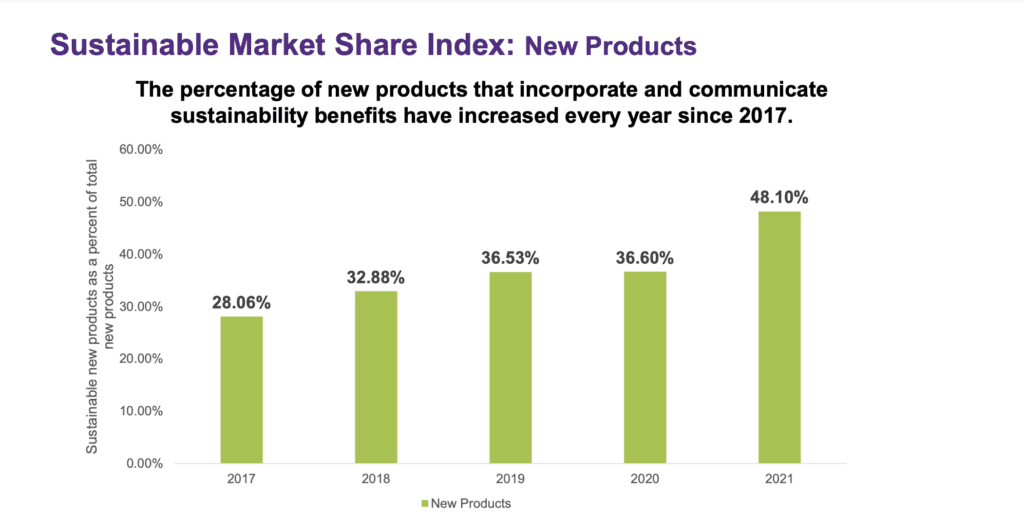Conscious consumerism is an emerging trend in which consumers make informed decisions about their purchases to bring about positive change in society, the economy, and the environment.
It involves mindful and ethical consumption that takes into account not only the products and services being bought, but also the companies behind them.
This type of consumerism encourages individuals to prioritize sustainability, human rights, and social responsibility when they shop.
Examples of Conscious Consumerism
One example of conscious consumerism is buying from companies that have made a commitment to sustainability. Consumers are becoming more aware of how their purchases affect both the planet and its inhabitants.
As such, many are choosing to purchase products from organizations that have eco-friendly production methods or use sustainable materials in their goods.
Shopping for local goods is another way people can practice conscious consumerism as this helps support small businesses that often set higher standards for ethical practices than larger corporations do.
Similarly, buying fair trade goods ensures that workers behind those products receive fair wages and benefits to help alleviate poverty and provide better living conditions for them.
Another important factor of conscious consumerism is boycotting companies or brands with questionable labor practices or those engaging in unethical behavior like animal testing or environmental degradation.
By refusing to purchase goods from such companies, we can send a powerful message that this type of behavior will not be tolerated. Similarly, opting out of fast fashion helps reduce waste while supporting stockists with ethically sourced fabrics and high-quality garments instead.
Why Is Conscious Consumerism Important?
Conscious consumerism is important for several reasons. For one thing, it helps to reduce our collective environmental footprint.
By choosing products that are sustainably sourced and manufactured in an ethical manner, we can help to reduce waste and conserve resources.
Additionally, conscious consumerism helps to create a better society by supporting companies that prioritize social responsibility over profits.
Finally, becoming a conscious consumer allows us to make better buying decisions that align with our values—and that means we’re less likely to regret our purchases in the long run!
Conscious Consumerism and the Economy
NYU Stern Business School’s 2021 report reveals how the rise of conscious consumerism is influencing economic trends.
Shopping habits are now taking on a new significance as consumers strive to make decisions with greater awareness and purpose.
Here are few highlights of the report, but you can read the full report here.
- Products marketed as sustainable now hold a 17.0% market share, up +3.3 ppts vs 2015, with significant growth during the pandemic
- Sustainability-marketed products delivered approximately one third of all CPG growth, despite representing 17% share
- Products marketed as sustainable grew 2.7x faster than products not marketed as sustainable and achieved a 6-YR CAGR of 7.3% vs. 2.8% for its conventional counterparts
- Carbon Labeled products now account for $3.4B in Sales, up from $1.7B in 2020

How Can You Become A Conscious Consumer?
Becoming a conscious consumer doesn’t require any major lifestyle changes or sacrifices; it’s simply a matter of being mindful when making purchasing decisions.
Here are some tips for getting started:
- Research the company you’re buying from before making your purchase—look into their ethics, sustainability initiatives, and customer service policies
- Buy second-hand or upcycled goods whenever possible as this reduces waste and supports small businesses
- Shop at stores or online retailers that specialize in sustainable fashion or ethically sourced items
- Choose durable goods over disposable ones wherever possible
- Consider investing in companies that prioritize social responsibility over profits
Conscious consumerism is an important practice for creating a more sustainable future. By being mindful about the purchases we make, we can support companies with ethical standards and reduce our collective environmental footprint.
It’s also important to remember that becoming a conscious consumer doesn’t require any major lifestyle changes—it’s simply about being aware of where your money is going and investing it in companies with values you believe in.
With just a little bit of effort, anyone can become a conscious consumer.
To learn more about Conscious Consumerism, check out these resources.
Conscious Consumerism: What It is, How It Can Affect Change & 10 Ways You Can Be a Conscious Consumer Yourself – Read more
Alaffia is Cultivating Beauty, Equality, and Empowerment in West Africa Through the Power of Global Business – Read more








